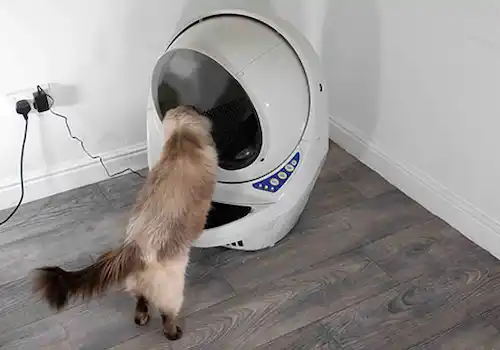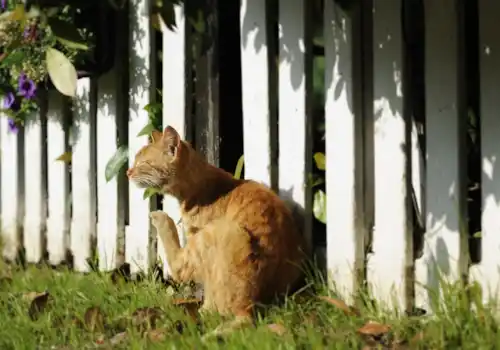Sadly, a number of cats are injured by airgun attacks every year. We look at what you should do if the worst happens.
PDSA vets say they are seeing more and more pets injured by weapons, including air guns, every year.
The charity is urging pet owners to be watchful and always report incidents to the police, press and vets to publicise the problem and save feline lives.
Vet Ms Turner says: "It is important to let your pet live a normal life but it is also important to weigh up the risks. If you find a wound, or if your pet is showing symptoms of pain, contact your vet as soon as you can."
The RSPCA to urge people to report air gun incidents. In 2012, the RSPCA received a total of 799 calls regarding air gun incidents.
Superintendent Martyn Hubbard says: "Our figures only provide a snapshot of this issue as many more animals crawl away to die in agony from their injuries.
"Sadly not all incidents are reported to us or witnessed."
He added: "We are appealing to the public to help prevent unnecessary suffering to countless animals by reporting any witnessed incidents to us or the police."
Air gun attacks
As cats are relatively small, even compared to a small dog, they have less tissue to soak up the energy produced by the pellet, making internal damge much greater.
The first challenge for vets is locating the pellet, especially if it has entered the abdomen. Surgery is almost inevitable and sometimes a vet will find the pellet but decide to leave well alone if it is not causing a problem.
One of the greatest dangers a gun shot victim can experience is the risk of infection. In an animal this is caused by contaminated fur being pulled into the wound by the pellet entering the body. If the pellet has penetrated a 'soft' organ such as the liver, there is a high risk of peritonitis.
This can be fatal unless the dirt and dead tissue is removed and the wound cleaned. Intensive antibiotic treatment needs to start immediately.
Attack checklist
So what can cat owners do if they suspect their pet has been attacked?
- First, try to find the point of entry
- An air gun wound is approximately 5mm in diameter and almost perfectly circular. It is an obvious 'hole' with a reddened or burnt edge.
- Check the body and limbs for small tufts of fur which will be sprouting from the wound.
- If you find a wound, contact your vet immediately to discuss your pet's condition.
- If you can't find a wound but your cat is showing non-specific but very severe symptoms and a change in behaviour (a lively cat will become very quiet) and not allowing their stomach to be touched, contact your vet - this could be the onset of peritonitis.
What is the current law?
Under the Firearms Act 1968, as amended by the Anti-social Behaviour Act 2003 and the Violent Crime Reduction Act 2006, it is an offence to have an air weapon (loaded or not) in a public place without a reasonable excuse.
It is also an offence for a person under the age of 18 to have an air weapon or ammunition for an air weapon in their possession without supervision of a person aged 21 or over.
Under the Animal Welfare Act 2006, anyone found guilty of causing unnecessary suffering to an animal could face a maximum six-month prison sentence or a £20,000 fine.







